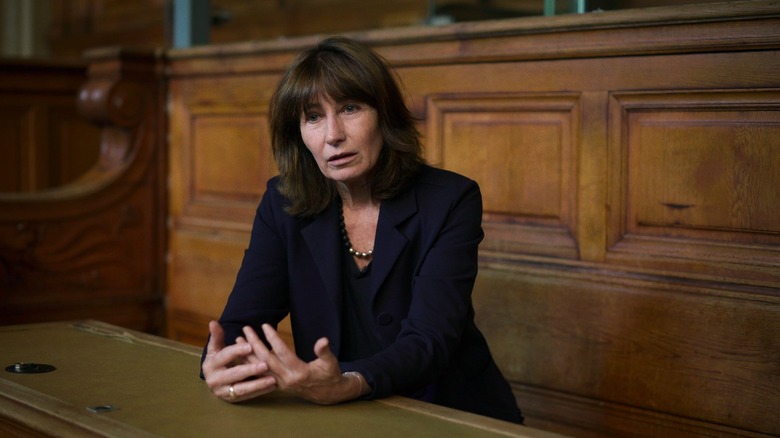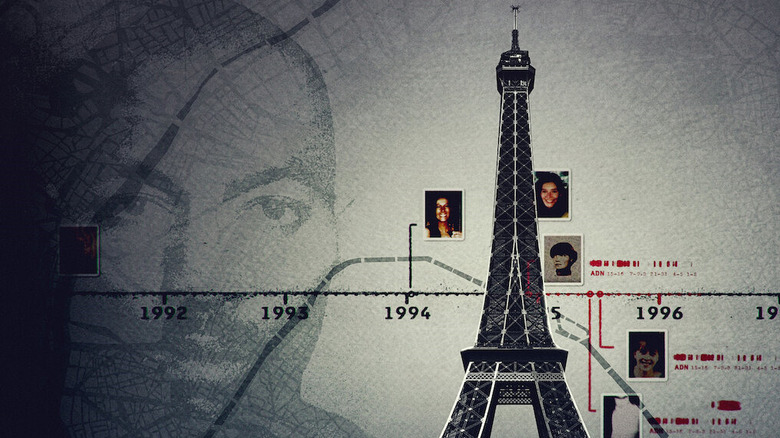The Daily Stream: The Women And The Murderer Brings Perspective To True Crime
(Welcome to The Daily Stream, an ongoing series in which the /Film team shares what they've been watching, why it's worth checking out, and where you can stream it.)
The Movie: "The Women and the Murderer"
Where You Can Stream It: Netflix (US)
The Pitch: As the pages flip along in Barbara Kingsolver's 1998 novel "The Poisonwood Bible," the reader is bound to notice, sooner or later, that of all the voices narrating the tale of the missionary Price family are women. Mother Orleanna Price and her four daughters switch off with their accounts of their family's missionary service in 1959 Belgian Congo, each memory profound and candid. The one voice that was noticeably missing from the account of events was that of abusive patriarch Nathan Price, who brought about devastation through his arrogance, fanaticism. One of the reasons why Kingsolver's book topped the bestseller lists in its time was its simple shift in structure: for once, bad men have to sit down and cede control of the narrative.
Such is the effect when watching "The Women and the Murderer," a French crime documentary directed by Mona Achache and Patricia Tourancheau. The synopsis:
Two brave women, a police chief and a victim's mother, make tireless efforts to find and prosecute serial killer Guy Georges, in 1990s Paris.
"I moved, and he stood still."
Known as the Beast of the Bastille, Georges was convicted of seven murders across the '90s, all women. Is there a recorded prison phone call of the killer "telling all?" A printed and narrated copy of his manifesto? Not a one. Georges gets no spotlight outside of his time in the courtroom. Instead, the microphone is claimed by a cadre of women directly involved with the case. There's Anne Gautier, the tenacious mother of Hélène Frinking, who was killed by Georges in 1995; Martine Monteil, who was the head of Serious Crimes Unit in Paris and handled the case (as well as that of Lady Diana Spencer's fatal crash in 1997); journalist Patricia Tourancheau, who details the fight with law enforcement over the term "serial killer," underlining the law's unpreparedness for a perpetrator like Georges; and vilified defense attorney Frédérique Pons gets a chance to unload her thoughts while the case was unfolding in the courtroom. It is through their key testimony that the tapestry of "The Women and the Murderer" is woven, over a crisp, riveting 92 minutes.
If the refreshing points of view don't mean one thing or another to you, "The Women and the Murderer" remains a well-paced procedural documentary that comments on the case and its cultural implications amid a spree of attacks on women. Due to the unrelenting efforts of the women interviewed, Georges was captured and convicted, both of which paved the way for a DNA database for crime-solving. The film is as much about policework as it is about a cold-blooded murderer, and the sordid details are tethered by their delivery from the mouths of subjects who saw and see the victims' humanity, and continue working on behalf of each other and justice everywhere. Guy Georges is defanged and deplatformed by being relegated to the sidelines of his crimes, a bit player in his own devastation. It recalls one of the best bits of "The Poisonwood Bible":
Nathan was something that happened to us, as devastating in its way as the burning roof that fell on the family Mwanza; with our fate scarred by hell and brimstone we still had to track our course. And it happened finally by the grace of hell and brimstone that I had to keep moving. I moved, and he stood still.

